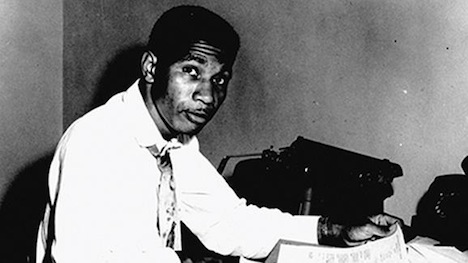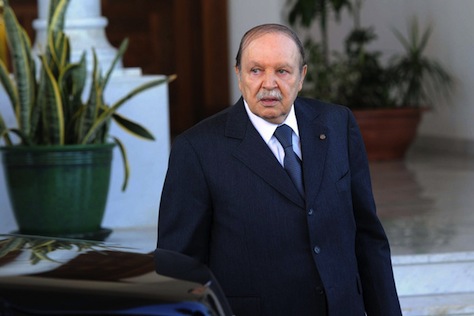
Exactly 50 years ago today — on June 12, 1963 — a young 37-year-old civil rights activist was brutally shot in the back in the driveway of his home in Jackson, Mississippi.
That young activist, Medgar Evers, had spent his tragically truncated life as the field secretary for the National Association for the Advancement of Colored People (NAACP), a role in which he helped James Meredith break the segregation barrier in order to become the first black male to enroll in the University of Mississippi in 1962.
Evers today has entered the pantheon of American heroes. His remains lie in Arlington National Cemetery near Washington, D.C. If you fly into Jackson today, you’ll fly into Mississippi’s largest airport, which is now named in honor of Evers. But at the time, his murderer was twice freed after a jury, comprised solely of white men, refused to convict him — he was convicted only in 1994 on the basis of new evidence.
In the 50 years since Evers death, the United States has become a much more equal place — after all, it elected its first non-white president five years ago, and it’s had two black secretaries of state. The world of white privilege and segregation that Evers — and Rosa Parks, Martin Luther King, Jr. and other civil rights leaders of the 1960s — fought to tear down is unrecognizable today.
But that doesn’t mean the cause for civil rights is over. Within the United States alone, black Americans remain far behind, as a group, on terms of socioeconomic gains. Immigrants to the United States, many of whom came to this country as young children, remain in painful legal limbo. Gay and lesbian Americans struggle not just for the right to same-sex marriage, but the right to live, work and exist without prejudice. A U.S. prison population in excess of seven million people (though that number is starting to decline), many of who are in prison for non-violent offenses, faces innumerable challenges to even their basic safety behind bars. The revelations of the NSA and PRISM programs show that the U.S. government continues to push forward with new surveillance tools that, though they may enhance homeland security, innumerably reduce global privacy rights.
That highlights the fact that the lines between greater civil rights in the United States and greater civil rights globally has blurred. In many ways, the work of Medgar Evers is now a broader, globalized struggle. U.S. activists work alongside European, Asia, Arab and African activists to challenge inequality worldwide.
- In Mauritania and elsewhere in the Sahel, the fight continues against the continued practice of human slavery.
- In Turkey, the crackdown this week of protesters at Taksim Square by prime minister Recep Tayyip Erdoğan have highlighted the fact that the biggest threat isn’t creeping Islamism, but the more garden-variety illiberal disregard for basic civil rights like freedom of speech and freedom of expression, and deeper abuses of power that have hollowed out Turkey’s democracy.
- Even as western Europe enters a world of same-sex marriage equality, many pockets of the world feature significant hurdles for gay and lesbian individuals — sub-Saharan Africa continues to treat gay activists with brutality and just yesterday, Russia passed a troublingly broad anti-gay law.
- In Iran, moderate presidential candidate Hassan Rowhani has pushed for the loosening of political and cultural censorship and greater political freedoms within the framework of Iran’s existing Islamic republic.
- In the People’s Republic of China, residents of Hong Kong marched last week on the occasion of the anniversary of the government crackdown on Tiananmen Square in 1989.
- The Arab Spring protests of 2011 — from Bahrain to Tunisia to Egypt — have made political participation unavoidable throughout the Arab world, even if new majoritarian Islamist governments now face new civil rights challenges in finding a way to make Islamic democracy work without introducing new elements of religious, political and gender-based inequality.
- A few hundred miles from the coast of Florida, Haitians continue to suffer from some of the worst poverty in the world, exacerbated by the tolls taken by the 2010 earthquake.
So as today’s more globalized fight for civil rights continues, it’s worth reflecting today to remember Evers and an entire generation of Americans who defined much of the content of what we think of as ‘civil rights’ in their fight for racial equality in the United States half a century ago.

Bottom photo credit to Kevin Lees — Arlington National Cemetery, Virginia, May 2012.
![]()


